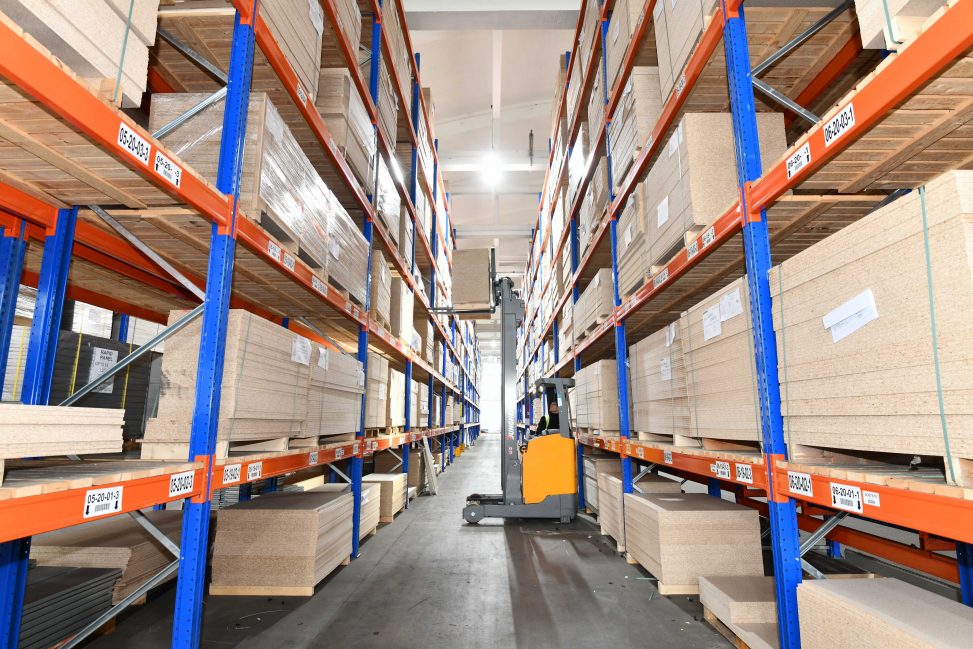How safe is your work site? That’s the question this National Forklift Safety Day!
National Forklift Safety Day is back for 2023, and this year the spotlight is being shone on improving site safety.
Managed by the UK Material Handling Association (UKMHA), this year’s Safe Sites Save Lives campaign will run throughout 2023 in a coordinated effort with the UKMHA’s Safe User Group (SUG) to encourage more members and non-members to participate with National Forklift Safety Day’s initiatives by highlighting the correct safety procedures which should be carried out when using forklifts and other material handling equipment.
Every day should be National Forklift Safety Day!
Forklifts are a common sight within the UK in both warehouses and construction sites. They are an important tool in the logistics and supply chain industry, but it is important to ensure that proper safety measures are taken when handling forklifts to avoid injuries, accidents, and fatalities. So, on National Forklift Safety Day 2023, we are highlighting the key safety guidelines for operating a forklift.
Proper Forklift Training
One of the most critical aspects of forklift safety in the UK is ensuring that all forklift operators receive proper training before operating a forklift. It is critical that they are trained on the specific type of forklift they will be using, in addition to carrying out general safety checks. Workers who use a forklift without appropriate training are putting themselves and others at serious risk.
Forklift training courses can range from one to five days. With both classroom and practical elements of training, a theoretical test and a practical test carried out to determine the operator’s competency. The length of training provided depends on the complexity of the forklifts in use since different forklifts have different controls. Once an operator has passed their test, they will receive a certificate of their qualification which is valid for 3 years. Continual training is required to ensure that operators remain competent.
Forklift Maintenance
Properly maintained machinery is vital in ensuring forklift safety. Forklifts should be regularly serviced and inspected to ensure they are in good operating condition. Manufacturers provide guidelines on maintenance schedules in their manuals, and this should be adhered to. However, maintenance checks should be carried out periodically between servicing visits to ensure that forklift components are in good condition and operating as intended.
The most common components to regularly check and replace include tires, brakes, steering, and lifting mechanisms. Tyres should be in good condition with appropriate tread. Steering systems need to be functioning correctly without signs of wear or damage. Forklift maintenance records should be kept to ensure that there is a record of every inspection, replacement, or service that is done to the machinery. Failure to carry out these checks increases the risk of accident and injury.
Forklift safety guidelines
Safety guidelines are critical to ensuring UK forklift safety. The guidelines are put together for the purpose of minimising hazards in the workplace. The guidelines are there to ensure that every worker has a responsibility to maintain health and safety, each worker must understand their responsibility and be held accountable for the adherence of UK forklift safety rules, laws and regulations. The most common safety guidelines to follow are wearing personal protective equipment, using seat belts and not exceeding weight limits. Operators should always wear steel-toed footwear, high-visibility vests, and safety helmets. In addition, they should wear ear protection and gloves, if needed. Seatbelts must always be worn to ensure that operators are secured and remain within the enclosed area of the forklift. Reviewing the load limits of the forklift is essential as this ensures the machinery does not overturn or tip over with items that exceed its weight capacity.
A tidy site is a safe site
One often-overlooked aspect of forklift safety is ensuring that the workplace is clean and tidy. A clean working environment reduces the potential for accidents and minimises the potential for damage to property. It frees the operator’s line of sight by removing the potential for the forklift to bump into an object and increases visibility when the operator is carrying a load. Workers should keep floors clear of debris and obstacles. Any spills or waste should be cleaned up immediately to avoid hazardous slip and fall accidents.
Do not operate forklifts under the influence
Forklifts must never under any circumstances be operated under the influence of drugs or alcohol. It is illegal in the UK to operate any kind of machinery while under the influence of alcohol or drugs, and that includes forklifts. Operating a forklift under such circumstances significantly increases the potential for accidents. It’s essential that operators remain alert and focused at all times while operating forklifts.
Forklift safety is a full-time job
Forklift safety is vital to ensuring workplace safety in the UK. Implementing safety measures such as proper training, maintenance, safety guidelines, a clean working environment, and operating machines safely increases the potential for accident prevention.
Forklift operators should never assume that they are ‘safe’ and should always follow proper safety procedures. Employers, in turn, must ensure that they provide workers with a safe working environment and ensure that machinery is properly maintained. The cost of proper safety measures is always less when compared to the cost of a tragedy due to negligence. By following these guidelines, employees can feel safe, and employers can ensure that they meet their legal obligations to keep their employees safe.
For further information you can visit: www.nationalforkliftsafetyday.co.uk

